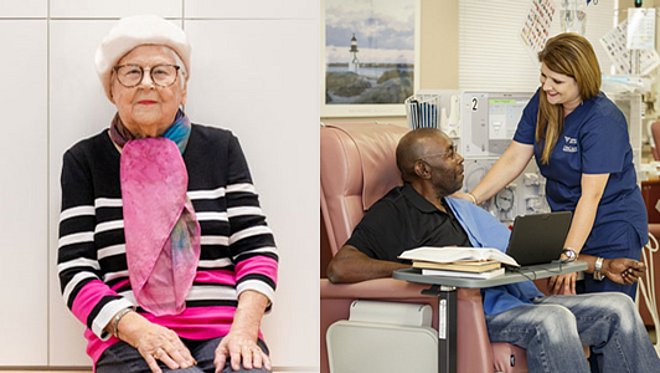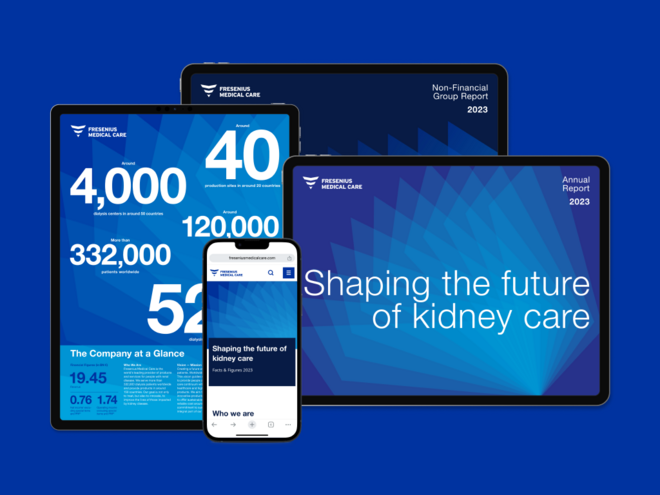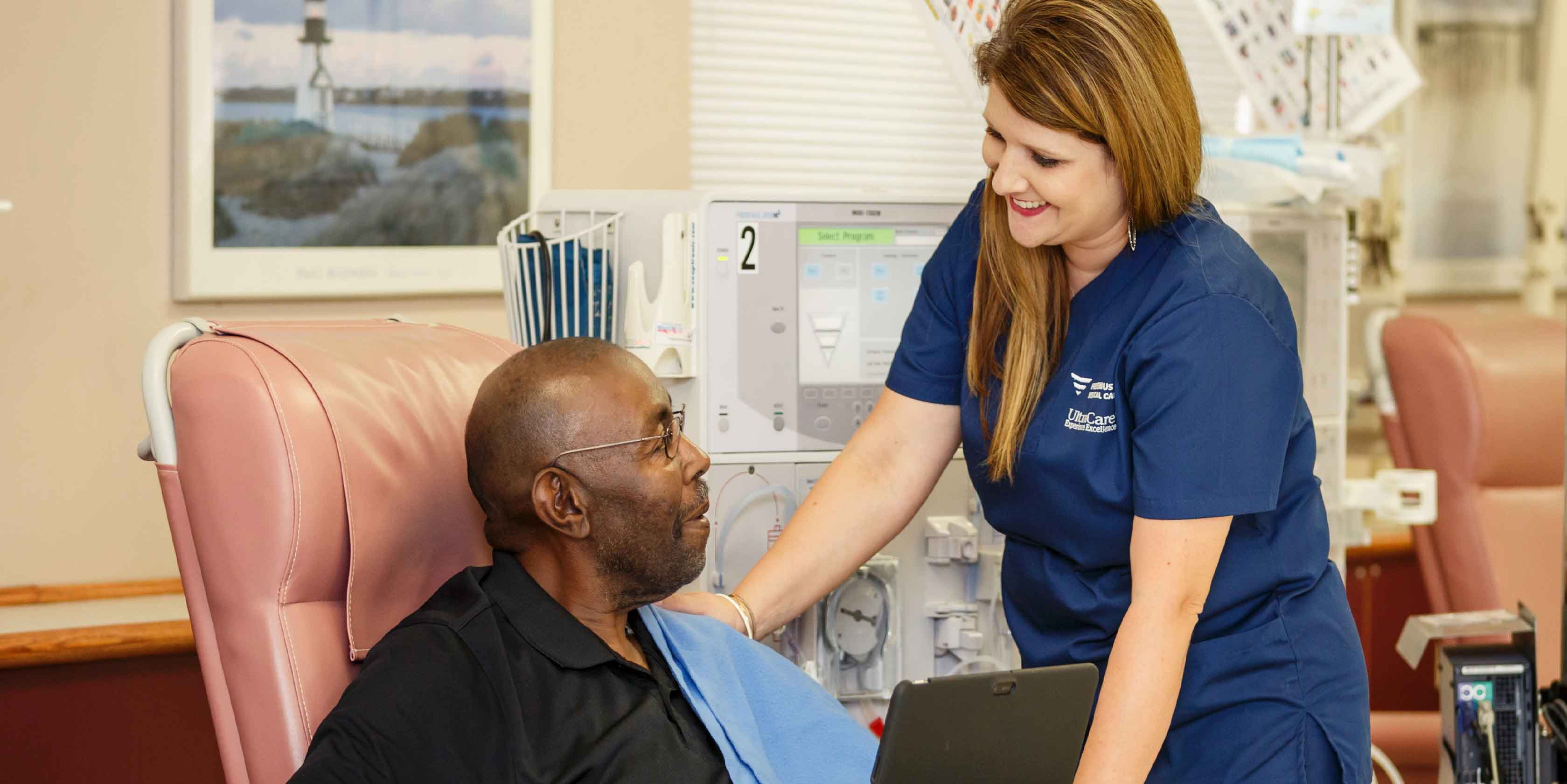
Saving lives – with and beyond dialysis
On the occasion of Fresenius Medical Care's 25th anniversary, CEO Rice Powell and Global Chief Medical Officer Franklin W. Maddux, MD, discuss ways to further improve the lives of kidney disease patients.
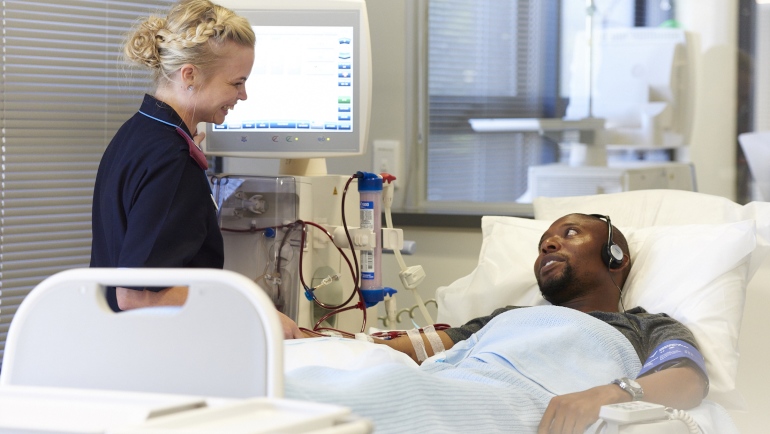
At least 500 million people worldwide suffer from chronic kidney disease.
Good health does not come with a guarantee, as the coronavirus pandemic made clear once again. It is a reminder that is unnecessary for millions of people who must live with a chronic illness. We both have spent decades working on one of these illnesses – kidney failure.
Compared to other chronic illnesses such as diabetes or cancer, kidney failure is much less in the public eye. This is so despite estimates that at least 500 million people worldwide suffer from chronic kidney disease. That equates to every tenth adult. And the numbers continue to rise. Major drivers are the typical afflictions in a modern society, like diabetes and high blood pressure.
In its most severe form – terminal kidney failure – the kidneys no longer filter the waste products from metabolism out of the blood. Excess water no longer is separated from blood to mix with urine for disposal. If those afflicted want to survive, they must select a kidney replacement therapy.
One option is a kidney transplant. However, the number of potential recipients far outstrips the number of available donor organs. That’s why the vast majority of those with chronic kidney failure – currently around 3.5 million people – receive dialysis. This is a demanding and physiologically complex procedure in which blood from a patient is pumped to an external filter for cleansing and modification before it is returned to the patient.

Fresenius Medical Care already has the world's largest data bank on advanced kidney disease.
Only 50 years ago, a diagnosis of terminal kidney failure meant almost certain death. Dialysis therapy was still in its infancy. Treatment was extremely expensive and not widely available. As late as the 1970s in the US, commissions were asked to decide who would receive one of the few treatment slots; tough decisions that meant the difference between life and death.
Thanks to medical progress, this situation thankfully has improved radically. We are enormously proud that Fresenius Medical Care – the world leader in dialysis – has played a decisive role in this. Our 25th anniversary as a company, which we are celebrating this fall, also marks 25 years of tireless efforts to improve the quality of life for ill people. Chronic kidney disease no longer equates to an automatic death sentence, at least not in developed countries. We are also doing all we can to give growing numbers of people in less-developed countries access to high quality dialysis treatment.
At the same time, we want to further improve life for kidney patients in all areas. The key to this is a holistic approach. Until now, treatment of people with kidney disease has been very fragmented. We have been the experts when it comes to treating chronic kidney failure at its worst stage. However, other caregivers treated these people before they reached that stage. The same holds true for transplant patients. Yet another set of caregivers treated the various conditions that can interact with kidney disease – high blood pressure and diabetes, for example.
This is neither efficient, nor effective. That is why the core of our strategy for the future is a shift to integrated kidney care. This means supporting patients along their entire treatment journey – before, and also beyond dialysis incorporating easier access to transplantation as a key kidney replacement therapy. Our goal: Better and more cost-effective therapies for people with chronic kidney disease.
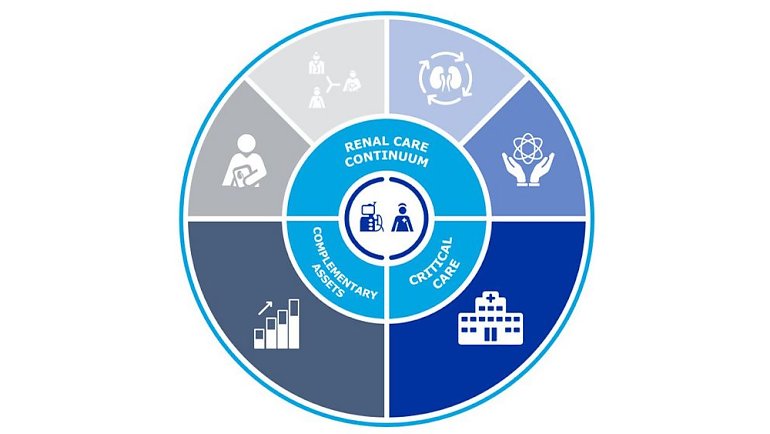
We want to further improve life for kidney patients in all areas. The key to this is a holistic approach.
One of several ways to go about this: delay dialysis or avoid it altogether. As advanced and safe as this treatment method is, dialysis for the patient remains a huge burden demanding major life adjustments.
The procedure used most often, known as hemodialysis, usually requires visiting a dialysis center three times a week, with each visit lasting several hours. Reconciling dialysis with the daily routine of employed or otherwise active persons is a great challenge. The disease and dialysis itself have an impact on physical well-being; there is a strict diet to follow and many other challenges to overcome.
When and if circumstances allow, the maxim must be: Better than dialysis is no need for dialysis. One way to get there – along with prevention and education measures that we strongly back – is to slow the decline in failing kidneys or stop the decline completely. To do this we need to care for kidney patients or people with pre-existing conditions much earlier than before, precisely in the sense of holistic treatment. This will allow us to help patients delay or even prevent the onset of chronic kidney disease.
Once kidney function has fallen below the critical mark, there is no alternative to kidney replacement therapy. In this case, a kidney transplant can be a very good alternative to treatment by dialysis. We have set the goal for ourselves to become even more active in this area. The US government has started an initiative to promote kidney transplants. We strongly support it, and we will commit our full resources toward implementing the initiative. The same holds true for similar efforts in other countries.
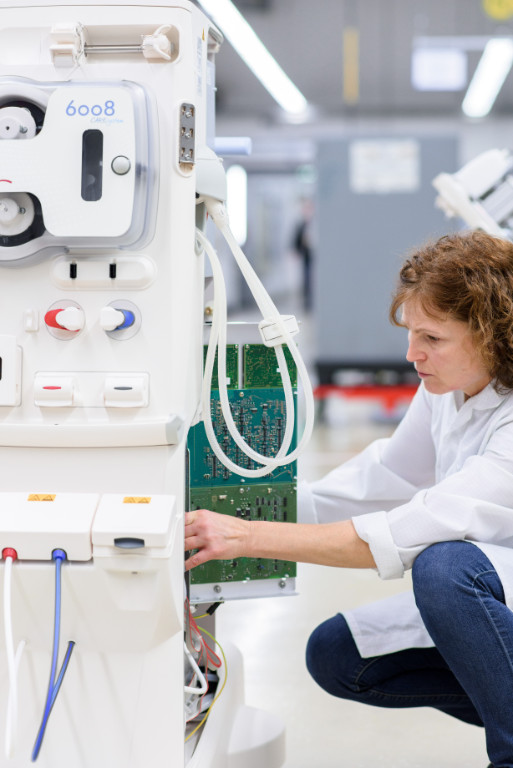
Our researchers and engineers work non-stop to improve dialysis machines, dialysis filters and related components.
"The core of our strategy for the future is a shift to integrated kidney care. This means supporting patients along their entire treatment journey – before, and also beyond dialysis."
Progress through digitalization and the ability to analyze larger amounts of data using artificial intelligences are powerful tools. Fresenius Medical Care already has the world’s largest data bank on advanced kidney disease. It is a constantly expanding repository of information on more than two million patients, more than a half-billion dialysis treatments and nearly two billion lab tests. This massive data bank allows us to search for biological markers that tell us how susceptible a person is to kidney disease, or how they would react to different therapeutic measures. This helps ensure the right treatment for the right patient at the right time.
Our researchers and engineers work non-stop to improve dialysis machines, dialysis filters and related components. In addition to that, we are pursuing completely new and innovative approaches to therapy. We also invest in promising start-ups and young companies.

More and more patients are opting for home dialysis, which is dialysis performed within their own four walls.
Dialysis treatment need not necessarily be performed in a dialysis clinic. More and more patients are opting for home dialysis, which is dialysis performed within their own four walls. We have committed substantial resources to further this evolution.
There are many advantages when people have choices. Patients gain a great deal of flexibility on when to dialyze. They can better integrate dialysis into their professional and private lives. And as a rule, patients dialyze themselves more often and more regularly at home, which has a measurable impact on their health and life expectancy. In a time of global pandemic such as this, it should be noted that home dialysis offers better protection against infection. In light of the special dangers of Covid-19 infections for dialysis patients, this last benefit should not be underestimated.
Home dialysis is not the right path for every patient. Some are simply incapable of conducting a dialysis treatment on their own, or they lack the necessary self-confidence. Others benefit from closer monitoring provided by regular visits to a dialysis clinic. Our position is that we want to offer home dialysis as an option for anyone who can do it, and who wants it.
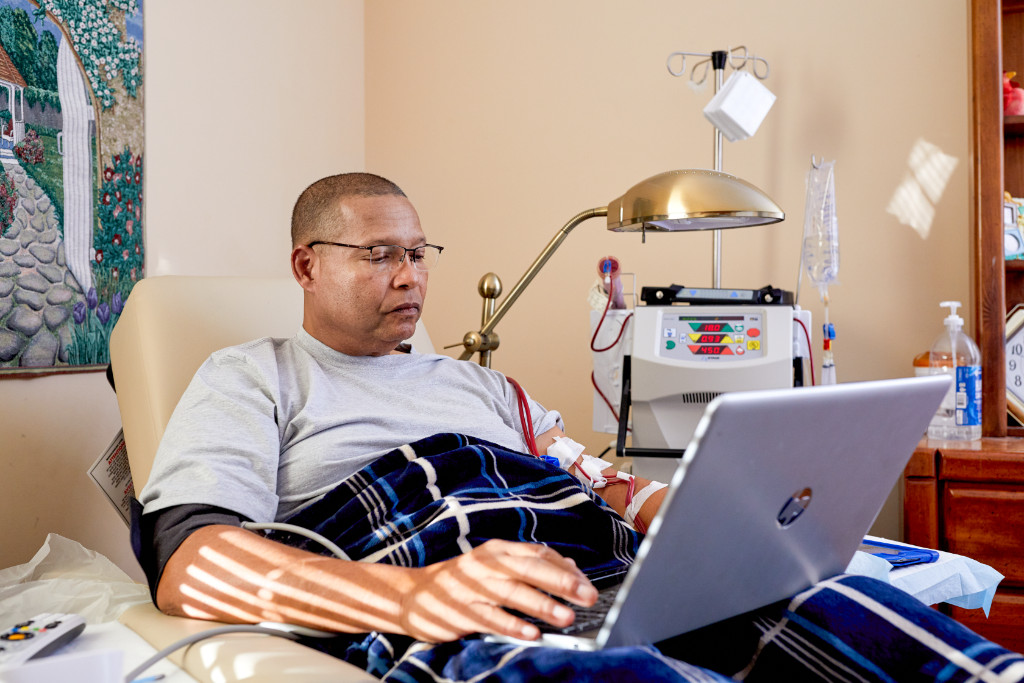
More and more patients are opting for home dialysis, which is dialysis performed within their own four walls.
Opting for home dialysis is not irreversible. Situations always arise where a patient returns to a center to be dialyzed, either temporarily or for a longer period of time. Because Fresenius Medical Care covers the full spectrum of therapies, we can offer seamless transition from one to the other and tailor therapies as individually as feasible for our patients.
How can we ensure that high-value care remains affordable? The answer lies in value-based care models. With this approach, we and other providers are no longer paid for a variety of individual services, as has been the case in the past. Instead, we take full responsibility for the health and well-being of our patients and all necessary treatments, and we receive a single payment which must cover all the costs. This encourages efficiency in care on the one side. On the other, models such as these evaluate and reward good clinical performance and outcomes. If our patients do better thanks to our good care, it will pay off for us. In this manner, we create an upward spiral of quality improvement coupled with decreasing costs.
The good news looking forward: We have many possibilities to improve the lives of people with kidney disease – with and beyond dialysis. At Fresenius Medical Care, we have been working hard on this for 25 years and we will not let up. Our mission is and will remain: Creating a future worth living. For patients. Worldwide. Every day.
